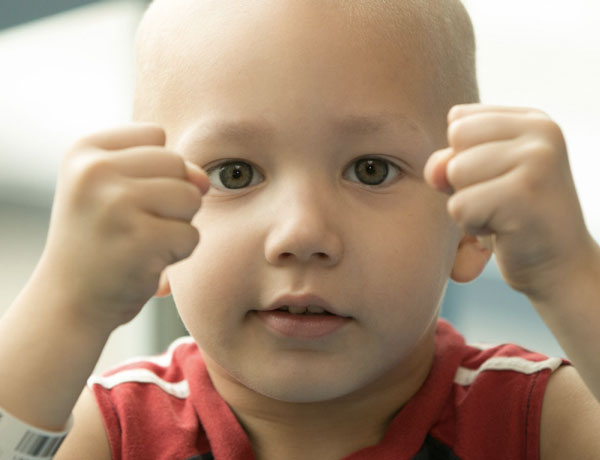Leave a Comment:
2 comments
[…] Surviving Multiple Myeloma- The Burden of Survivorship and Life After Treatment […]
Reply[…] Surviving Multiple Myeloma- The Burden of Survivorship and Life After Treatment […]
Reply
Multiple Myeloma an incurable disease, but I have spent the last 25 years in remission using a blend of conventional oncology and evidence-based nutrition, supplementation, and lifestyle therapies from peer-reviewed studies that your oncologist probably hasn't told you about.
Click the orange button to the right to learn more about what you can start doing today.

The article below had me at “life after treatment.” Once in a great while, I find an interesting, well-written article that summarizes my feelings and experiences about a particular multiple myeloma (MM) issue. The article linked and excerpted below expresses the difficulties of the life of a MM survivor to-a-tee.
Why is this blog post important for MM survivors to read? Identifying side effects, either mental or physical, is key to managing them.
The good news is that there are evidence-based therapies to address the mind-body challenges of “life after treatment.” I am both a long-term MM survivor and MM cancer coach. To learn more about the new normal, mind-body therapies, therapies to help you remain in remission, scroll down the page, post a comment or a question and I will reply ASAP.
Just as important as it is to manage your thinking as a MM survivor, it is important to continue to manage or treat your MM with evidence-based, non-conventional, non-toxic therapies.
I think that conventional MM oncology has it wrong. I live every day as if I could relapse. I eat, supplement, exercise, sauna, etc. daily. This is the key to remaining in complete remission since 4/99.
To learn more about evidence-based, non-toxic MM therapies, scroll down the page, post a question or comment and I will reply to you ASAP.
Thank you,
David Emerson
The article is italicized and my comments are in purple.
1) “A diagnosis of cancer is usually a life-changing event, and helping patients with this realization can be as important as reviewing their physical well-being, says Robert Fisher, MD, a medical oncologist from the Rocky Mountain Cancer Centers, in Longmont, Colorado.”
My multiple myeloma diagnosis changed my life- Dramatically.
2) “We (oncologists) view recovery from the standpoint of the frequency of office visits and treatment dates,” Dr. Fisher writes. “But from the patients’ perspective, as active treatment ends, their cancer experience may be just beginning.”
At the time, I was caught up in round after round of chemotherapy and radiation, then an autologous peripheral blood stem cell transplant. Then I focused on recovering from the transplant itself. This entire process lasted for the first 4 years after my initial MM diagnosis. I didn’t have the time or the energy to think about my life after this therapy.
3) “Dr. Fisher commented to Medscape Oncology that the posttreatment letdown comes from both the sudden loss of attention from oncology staff and from a realization that the patient is suddenly “alone” in their fight against the cancer. “In general, we do little to transition patients to ‘life after treatment.’ When a patient goes from this overwhelming, intense scrutiny and support to ‘we’ll see you in 3 months,’ it must be psychologically hard for most.”
Not only was there no talk of life after treatment but I found myself constantly worrying about a multiple myeloma relapse.
4) “Survivorship is a relatively new area of focus,” she writes. “Lots of us didn’t make it before, so it wasn’t a real issue. And most oncologists haven’t spent much time thinking about what happens when we live.”
Think about that “lots of us didn’t make it before…” I was told that the average life expectancy of a multiple myeloma patient was 3-5 years. That was in early 1994. Of course, there was no talk of life after cancer.
5)“I am a different person living in the same world, and it’s going to take a while for me, and the people around me, to adjust to that,” writes a leukemia survivor.
“After about a year I realized that I would never feel like I did prior to diagnosis, either physically or emotionally,” writes a breast cancer survivor. “When I finally understood this, I slowly began to enjoy life more and not be as consumed by worry.”
“It was well over a year before I felt like myself mentally and wasn’t terrified I was going to die,” writes Ellen, who had a kidney tumor removed by surgery. “Every year, going for the annual follow-up tests, scans, etc, brings up all the anxiety and fear they’ll find some type of cancer again, I doubt that feeling ever goes away.”
But another patient writes that he is “glad he had cancer.”
When it comes to my own multiple myeloma survivorship, I find myself saying, “if I knew then what I know now.” Any cancer patient going through cancer from the newly diagnosed, to active treatment such as chemo, radiation, or surgery, can expect to feel a letdown after your current treatment. I have found that exercise, nutrition, supplementation- that is to say, focusing on my health, has helped me manage my life after a diagnosis of multiple myeloma.
[…] Surviving Multiple Myeloma- The Burden of Survivorship and Life After Treatment […]
Reply[…] Surviving Multiple Myeloma- The Burden of Survivorship and Life After Treatment […]
Reply